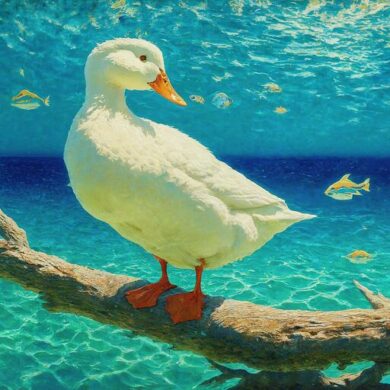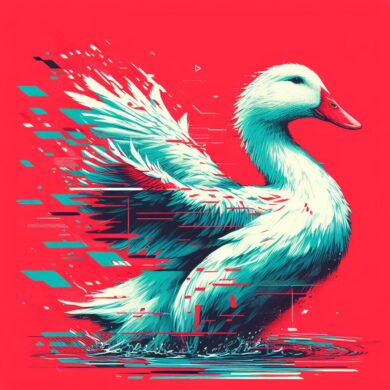“Duck competition” - a tradition?「アヒル競争」は伝統?
Itoman Harleys
This event is held every year on May 4th of the lunar calendar in the Itoman Fishing Port Naka area of Itoman, Itoman City, Okinawa Prefecture. It is one of Itoman City's traditional events, along with the Itoman Grand Tug of War held on the 15th night of autumn. Harleys are said to have been introduced from China about 600 years ago, and are a way of praying for safe voyages and bountiful catches by rowing dragon boats against each other.
infomation: Wikipedia
Is the shaky ritual “duck competition” a tradition?
Men in small wooden boats row oars in unison. The Itoman Harley is a traditional Shinto ritual held in Itoman City, the southernmost tip of Okinawa's main island, in early summer. Regarding this Itoman Harley, one man involved in the event was referred to the prosecutor's office. The reason is "suspected violation of the Animal Welfare Act."

A Long History of Animal Respect
The Japanese have a long history of respecting animals. Shinto, the indigenous religion of Japan, teaches that all living things have a spirit, and animals are often seen as companions and protectors. This reverence for animals is evident in many aspects of Japanese culture, such as the traditional practice of keeping koi (錦鯉) carp as pets. Koi are considered to be symbols of good luck and perseverance, and they are often kept in ponds or gardens.
Modern Challenges to Animal Welfare
Despite its strong tradition of animal respect, Japan faces a number of challenges when it comes to animal welfare. One of the biggest challenges is the country's intensive farming practices. In order to meet the demand for meat and other animal products, Japanese farms often raise animals in cramped and unsanitary conditions. This can lead to a number of problems, including animal stress, disease, and injury.
Another challenge to animal welfare in Japan is the country's pet trade. Every year, millions of animals are bought and sold in Japan, and some of them come from commercial breeding facilities.

Balancing Tradition and Animal Welfare
The debate over the duck-catching ritual highlights the complex relationship between tradition and animal welfare. On the one hand, traditions and cultural practices are an integral part of a community's identity and provide a sense of continuity and belonging. On the other hand, it is essential to ensure that these practices do not cause undue harm to animals.
Alternative Approaches
In light of the growing concerns about animal welfare, it is important to explore alternative approaches that can preserve the cultural significance of the Itoman Harley while minimizing the impact on ducks. Some potential solutions include:
- Replacing live ducks with artificial ones: This would allow the ritual to continue without involving animals.
- Modifying the duck-catching competition: The rules of the competition could be modified to reduce the risk of injury to ducks. For example, participants could be prohibited from grabbing or pulling the ducks' feathers.
- Raising awareness about animal welfare: Educational campaigns can be conducted to raise awareness about the importance of animal welfare and encourage participants to handle the ducks with care.

Moving Forward
Finding a balance between tradition and animal welfare requires a collaborative effort from various stakeholders, including community leaders, animal welfare organizations, and the local government. By engaging in open dialogue and exploring alternative solutions,maybe we can find a way to ensure the welfare of the animals.
I might to believe that traditions are not static, but evolve over time.. By incorporating animal welfare considerations into the Itoman Harley, the community can demonstrate its commitment to compassion and respect for all living beings.
Here are some ways you can help:
- Contact the organizers of the Itoman Harley and express your concerns about animal welfare.
- Support animal welfare organizations that are working to protect animals in Japan.
- Educate others about the importance of animal welfare and encourage them to speak up against cruelty to animals.
By working together, we can create a more compassionate future for animals in Japan and around the world.
糸満ハーレー
沖縄県糸満市糸満町糸満漁港那珂地区で毎年旧暦の5月4日に行われるこの行事は、十五夜で行われる糸満大綱挽きと並んで糸満市の伝統行事の一つです。競争は約600年前に中国から伝わったと言われ、龍船を漕ぎ合わせることで航海の安全や豊漁を祈願する行事です。
参考資料: Wikipedia
READ MORE
揺れる神事「鴨競技」は伝統か。
小さな木造船に乗った男たちが、一斉にオールを漕ぐ。糸満ハーレーは、沖縄本島最南端の糸満市で初夏に行われる伝統的な神事だ。この糸満競技をめぐり、関係者の男性が書類送検された。理由は「動物愛護法違反の疑い」だ。
動物尊重の長い歴史
日本人は古くから動物を尊んできました。日本固有の宗教である神道では、すべての生き物に魂が宿ると説かれており、動物はしばしば仲間や守護者として扱われます。こうした動物への畏敬の念は、鯉をペットとして飼うという伝統的な習慣など、日本文化の多くの側面に表れています。鯉は幸運と忍耐の象徴とされ、池や庭で飼われることがよくあります。
動物福祉に対する現代の課題
日本は動物を尊重する強い伝統があるにもかかわらず、動物福祉に関しては多くの課題に直面しています。最大の課題の一つは、集約的な畜産慣行です。食肉やその他の動物性食品の需要を満たすため、日本の農場では動物を窮屈で不衛生な環境で飼育することがよくあります。これは、動物のストレス、病気、怪我など、多くの問題につながる可能性があります。日本における動物福祉のもう一つの課題は、ペット取引です。毎年、日本では何百万頭もの動物が売買されており、商業的な繁殖施設から来ているのもいるようです。
伝統と動物福祉の両立
アヒル捕獲の儀式をめぐる議論は、伝統と動物福祉の複雑な関係を浮き彫りにしています。一方で、伝統や文化的慣習はコミュニティのアイデンティティの不可欠な部分であり、継続性と帰属意識をもたらします。他方で、これらの慣習が動物に過度の害を及ぼさないよう確保することが不可欠です。
代替アプローチ : 動物福祉に関する懸念の高まりを踏まえ、糸満競技の文化的意義を維持しながら、アヒルへの影響を最小限に抑えることができる代替アプローチを模索することが重要です。考えられる解決策には次のものがあります。
生きたアヒルを人工のアヒルに置き換える:これにより、動物を関与させずに儀式を継続することができます。
アヒル捕獲競争の変更:アヒルが負傷するリスクを減らすために、競争のルールを変更できます。たとえば、参加者がアヒルの羽をつかんだり引っ張ったりすることを禁止できます。
動物福祉に関する意識の向上:動物福祉の重要性についての意識を高め、参加者がアヒルを注意深く扱うように促すための教育キャンペーンを実施することができます。
伝統と動物福祉のバランスをとるには、地域のリーダー、動物福祉団体、地方自治体など、様々な関係者の協力が必要です。率直な対話を行い、代替案を模索することで、糸満ハーレーの文化的エッセンスを守りつつ、動物たちの福祉を確保する方法を見つけることができるかもしれません。
伝統は静的なものではなく、時とともに進化していくものかもしれません。糸満競技に動物福祉への配慮を取り入れることで、地域社会はすべての生き物への思いやりと敬意を示すことができます。


